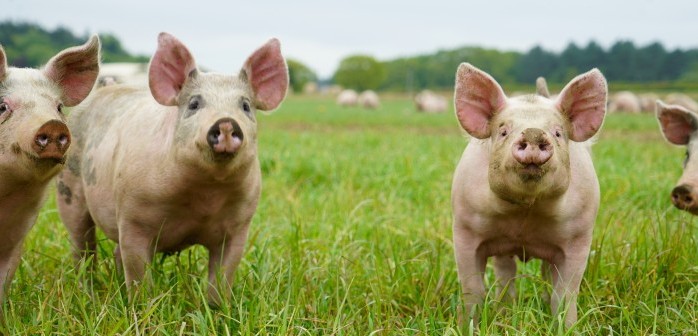Pilgrim’s Pride Ltd, formerly Tulip, has developed a new sustainability strategy as it looks to become ‘the best and most recognised sustainable organisation in the industry’.
The ‘Pilgrim’s UK 2030’ strategy aims to build on what the company describes as its ‘already industry-leading sustainability positions and extend these across its entire supply chain’.
The Brazilian-owned and US-based company purchased Tulip in October 2019 and the name changed to Pilgrim’s Pride on August 31. The company, the UK’s largest integrated pig producer and processor, said it now has a ‘unique opportunity to share its leading sustainable farming credentials and resilient local practices on a global platform’.
Five ‘sustainability pillars’ have been identified as part of the strategy – Sustainable farming, Sustainable food production, Sustainable Products, Sustainable Packaging and Sustainable Business & Community.
As part of the Sustainable Production pillar, the company is introducing new ways of working to develop ‘world class operational practices across its 15 sites’, with the aim of improving site efficiency and therefore reducing the environmental footprint of the businesses. The company said it was committed to establishing science-based targets to achieve net zero carbon emissions.
The company set out its existing credentials, including farming division, BQP’s welfare standards, with ‘higher welfare’ RSPCA Assured accounting for 70% of its total UK pig supply chain, with the remaining 30% sourced from standard independent farmers. All farms are Red Tractor assured.
Earlier this year, Tulip, as it was then, received the highest benchmark rating for its animal welfare standards following a privately commissioned assessment by the world-renowned ‘Business Benchmark on Farm Animal Welfare’ (BBFAW), although it is not part of the wider benchmark.
The company highlighted its state-of-the-art agricultural R&D facilities, which offer ‘ground-breaking innovations across antibiotic usage, soya reduction and alternative feeding programmes and genetic evaluations’.
All soya used in the diets of its pigs has been certified as being responsibly sourced since 2017 and an extensive research and development programme has resulted in the supply chain having the lowest soya usage of any pig producer in Europe, the company claimed.
The company also pointed how its pork production is part of an arable rotation system – providing the opportunity for grain and straw to be ‘recycled’ through the pigs adding value into the subsequent crops.
Matt Dight, the company’s head of sustainability, said the past 12 months had seen a significant reduction in the company’s environmental footprint across its own sites, alongside improved biodiversity on its farms and reduced water and energy usage.
He claimed the company was the ‘best-performing in the industry’ in terms of food waste, with just 0.1% waste, and was working towards a circular ‘no waste’ economy, while 100% of the electricity used across the manufacturing operations is purchased from the grid as renewable.
“More than ever, people are thinking about the footprint of the food they eat,” he said. “Our vision is built upon a locally resilient, higher-welfare supply chain. Our manufacturing targets – focusing on areas such as human rights, biodiversity, energy, water and waste – are aligned with UN Sustainable Development Goals, enabling us to future-proof the business.”
Andrew Saunders, agriculture director at Pilgrim’s Pride, said: “Investing in the future is vital for farming. We partner with over 800 UK pig farmers and 600 lamb farmers and our local, resilient and British farming supply chain meant that we were able to safely continue to feed the nation during Covid-19.
“Our aim is to be the partner of choice for the UK farming industry and our unique business model, where we own all of our own livestock, rewards our farmers for high quality and animal welfare, and also provides total control over veterinary inputs and diet formulation.”




